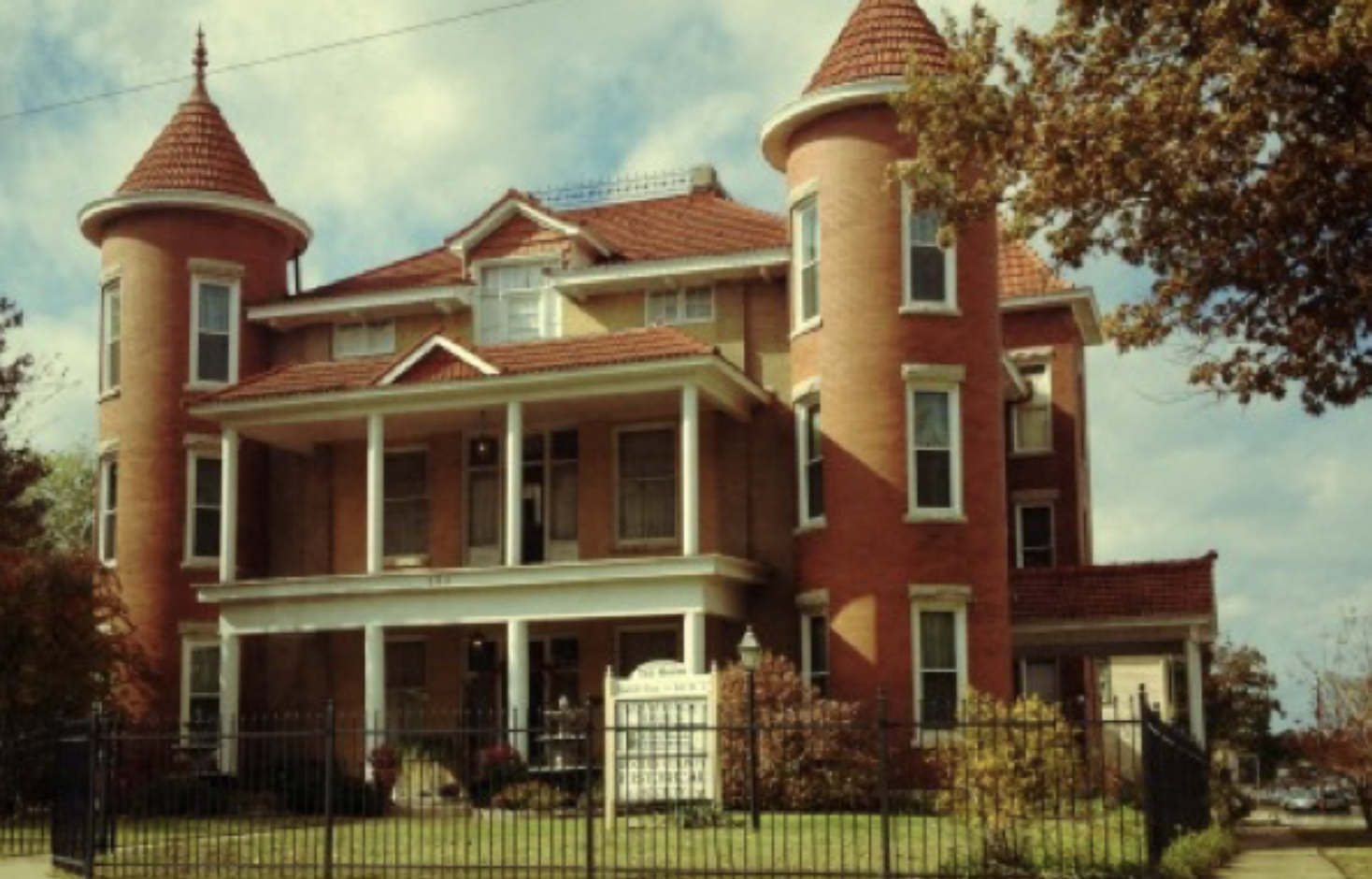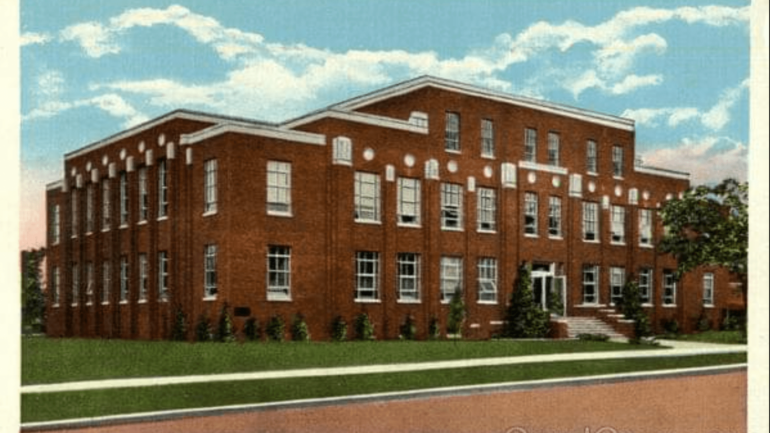As posted on MoreClaremore on November 13, 2013 by Kathy Weiser.
The Belvidere Mansion in Claremore, Oklahoma, not only provides a peek at history, but possibly, even a peek at a ghost or two. Listed on the National Register of Historic Places, the three-story mansion was built by John M. Bayless starting in 1902. Bayless, who was instrumental in building the Cassville and Western (C&W ) Railroad, as well as the Arkansas & Oklahoma Railroad, moved his family to Indian Territory from Cassville, Missouri, in 1901. The next year, he began to build the castle-like mansion for his wife, Mary Melissa Bayless, and his seven children. Belvidere was not only successful in the railroad business, but also in banking and land development.
The gothic-style brick home, complete with tile roof and four towers, provided for a portico on the north side for the guest carriages, as well as a large covered porch at the front entrance with a matching balcony directly above it. Inside, the floors were covered in tile, with wainscoted marble walls and pressed tin ceilings. Sliding pocket doors were used in several rooms and many had fireplaces. Much of the trim and woodwork used were brought from the 1904 World’s Fair in St. Louis. The third floor of the mansion was dedicated to a 2,400 square foot ballroom.
Due to its immaculate details, the mansion took several years to build. At the same time, Bayless was also building a three-story Opera House, the Sequoyah Hotel, and an athletic building with an indoor swimming pool. Sadly, Mr. Bayless would never see the completion of his grand mansion. In 1907, just six months before it was completed, Bayless died following an operation for appendicitis. He was president of the Bank of Claremore at the time of his death.
Mary Bayless and her six surviving children finished the mansion after his death and continued to reside there until 1919. All of her children resided in Claymore, with her older sons becoming involved in the Bank of Claremore. Another became the local postmaster, and yet another went on to become a State Supreme Judge.
The building then changed hands several times and in the 1930’s was sold to an investor who turned it into apartments. Like other historic structures that become rentals, the mansion deteriorated over the years until it was purchased by the Rogers County Historical Society in 1991. Today, the beautiful old building has been restored to its former glory and is fitted with period furnishings. Of all the buildings that Bayless built, only the mansion remains.
Over the years, numerous people have reported that John Bayless and other members of his family; however, still continue to “reside” in the beautiful old home. These allegations tell of unexplained noises, actual sightings of hazy figures, toilets that flush by themselves, hot and cold spots, and feelings of being touched by someone when no one is there. On several occasions, paranormal groups have investigated the old mansion, seeming to find the most paranormal activity on the second floor. There, psychics have “seen” children playing, and “meeting” a distressed John Bayless, and a distraught young woman who allegedly committed suicide when she lived in the building as a tenant in the 1940’s



